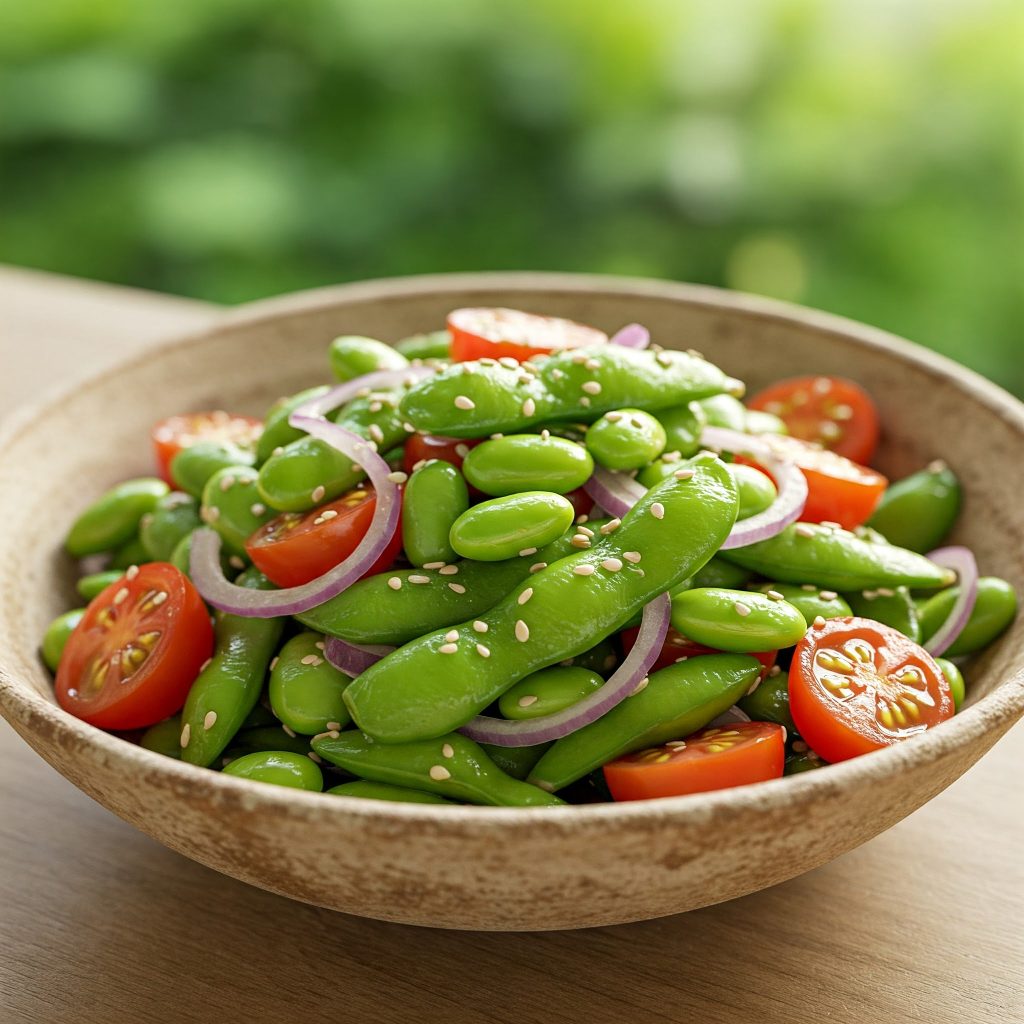Athletes are always on the lookout for ways to improve their game, and nutrition is a key part of that equation. While supplements and trendy diets often grab the spotlight, there’s a humble whole food that deserves some attention: edamame. These young soybeans pack a punch with plant-based protein and a compound called Nicotinamide Mononucleotide (NMN), which might just give your endurance a lift. Let’s break down how edamame can support your athletic goals and how to make it part of your routine.
Why Edamame Matters for Endurance
Edamame’s standout feature is its NMN content. NMN helps your body produce Nicotinamide Adenine Dinucleotide (NAD+), which is crucial for turning food into energy—especially during long runs or intense workouts. NAD+ keeps your mitochondria (the powerhouses of your cells) firing, which can improve your aerobic capacity. In simpler terms, it might help you push harder and longer.
A 2021 study in the Journal of the International Society of Sports Nutrition found that NMN supplements boosted ventilatory threshold in runners—meaning they could sustain higher efforts without burning out. While edamame doesn’t pack the same NMN punch as supplements, it’s a natural source that can still contribute to your performance when paired with a solid diet.
What Else Edamame Brings to the Table
Edamame isn’t just about NMN—it’s a nutritional all-star for athletes. Here’s what you get in a 100-gram serving:
- Protein: About 11 grams to help repair and rebuild muscle after a tough session.
- Fiber: Keeps your energy steady, so you don’t crash mid-workout.
- Vitamins and Minerals: B6 for energy metabolism and magnesium for muscle recovery.
It’s a practical, plant-based option that supports both your immediate needs and long-term goals.
How to Add Edamame to Your Diet
Good news: edamame is easy to work into your meals. Here are some ideas:
- Quick Snack: Steam it, add a pinch of sea salt, and you’ve got a protein boost before or after training.
- Meal Upgrade: Toss it into salads, bowls, or stir-fries for extra nutrition.
- On-the-Go: Keep frozen edamame handy for a no-fuss option during busy days.

It’s versatile, tasty, and doesn’t require a culinary degree to prepare.
The NMN Catch: Food vs. Supplements
Here’s the deal: edamame has NMN, but not a ton—roughly 0.47 to 1.88 mg per 100 grams. Studies showing big performance gains used supplements with 300 to 1200 mg daily. So, while edamame can chip in, it’s not a replacement if you’re chasing higher doses. If you’re curious about supplements, talk to a pro to see what fits your plan. Otherwise, edamame’s a solid, natural way to round out your nutrition.
Wrapping It Up: Edamame’s Place in Your Lineup
Edamame won’t transform you into an Olympic sprinter overnight, but it’s a smart, simple addition to an athlete’s diet. With its protein, fiber, and a sprinkle of NMN, it supports endurance, recovery, and overall health. Whether you’re training for a race or just staying active, edamame’s an easy win worth trying.
Want to dig deeper? Check out the NMN research in the Journal of the International Society of Sports Nutrition (2021) or Frontiers in Nutrition (2022).